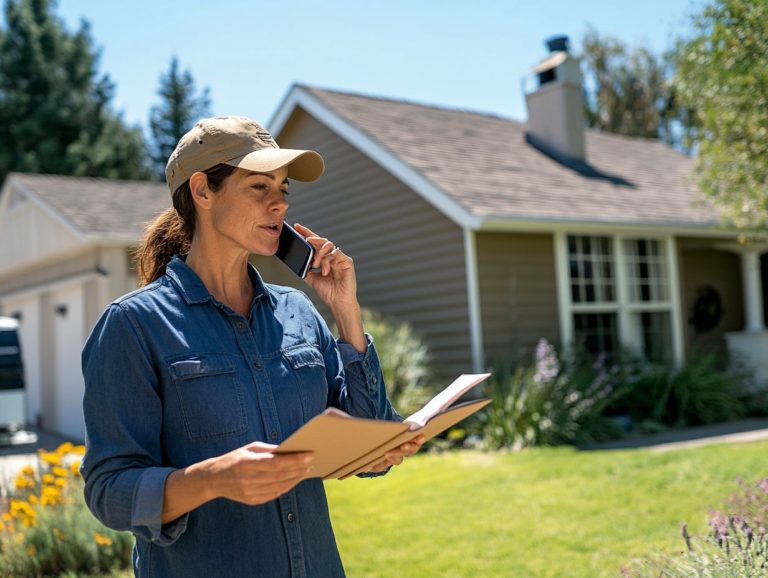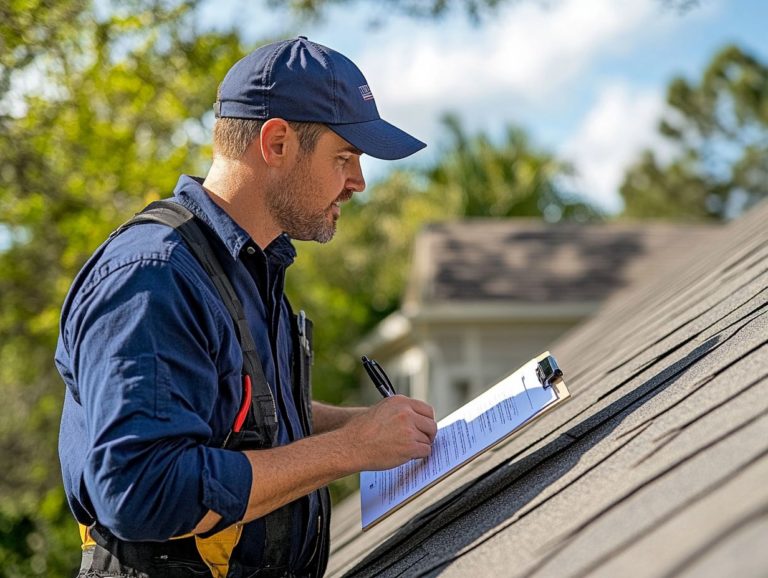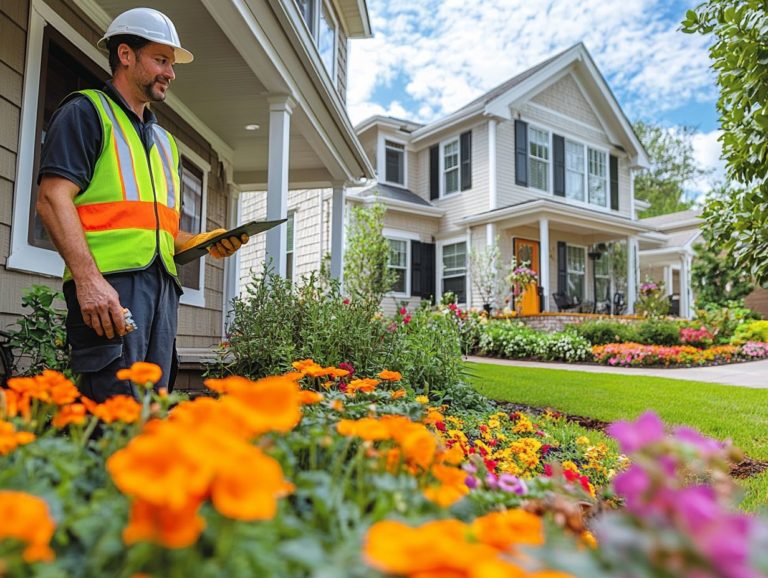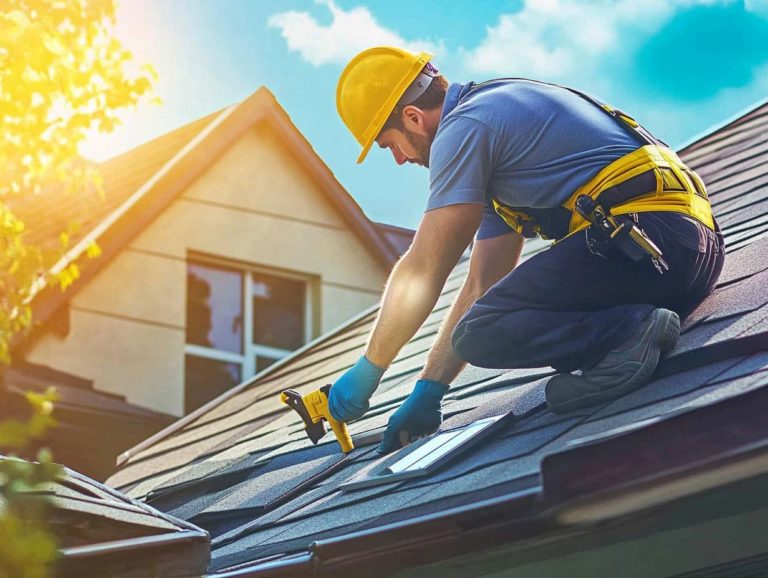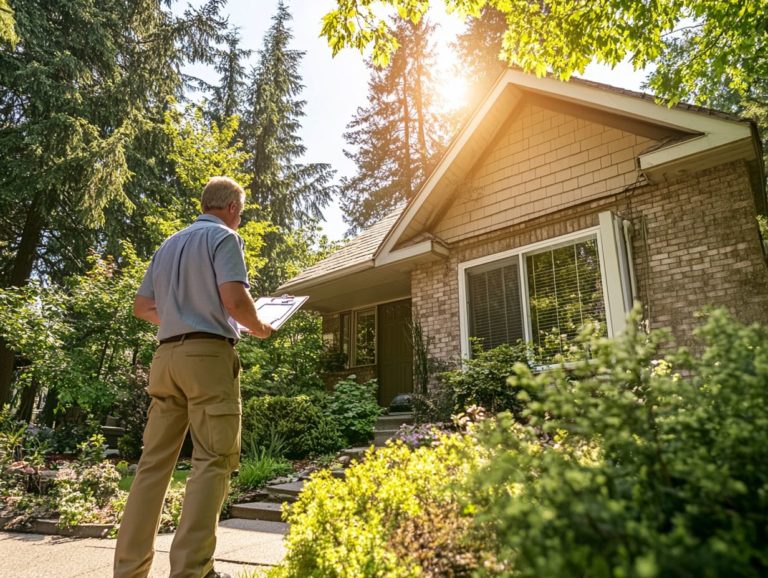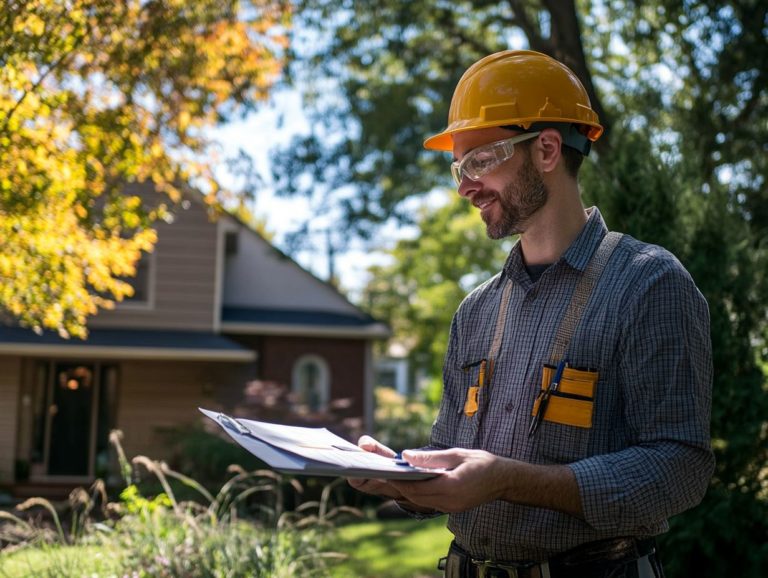Understanding Home Inspection Costs
Navigating the world of real estate can feel overwhelming, particularly when it comes to understanding the details of home inspections. This vital step empowers you to uncover potential issues in a property, ensuring you make well-informed decisions.
The costs associated with home inspections can fluctuate widely, influenced by factors such as the size of the home, its location, and the specific type of inspection required. You’ll find clarity in understanding what to expect regarding costs, additional fees, and savvy tips for saving money while ensuring a comprehensive assessment of your future home.
Contents
Key Takeaways:
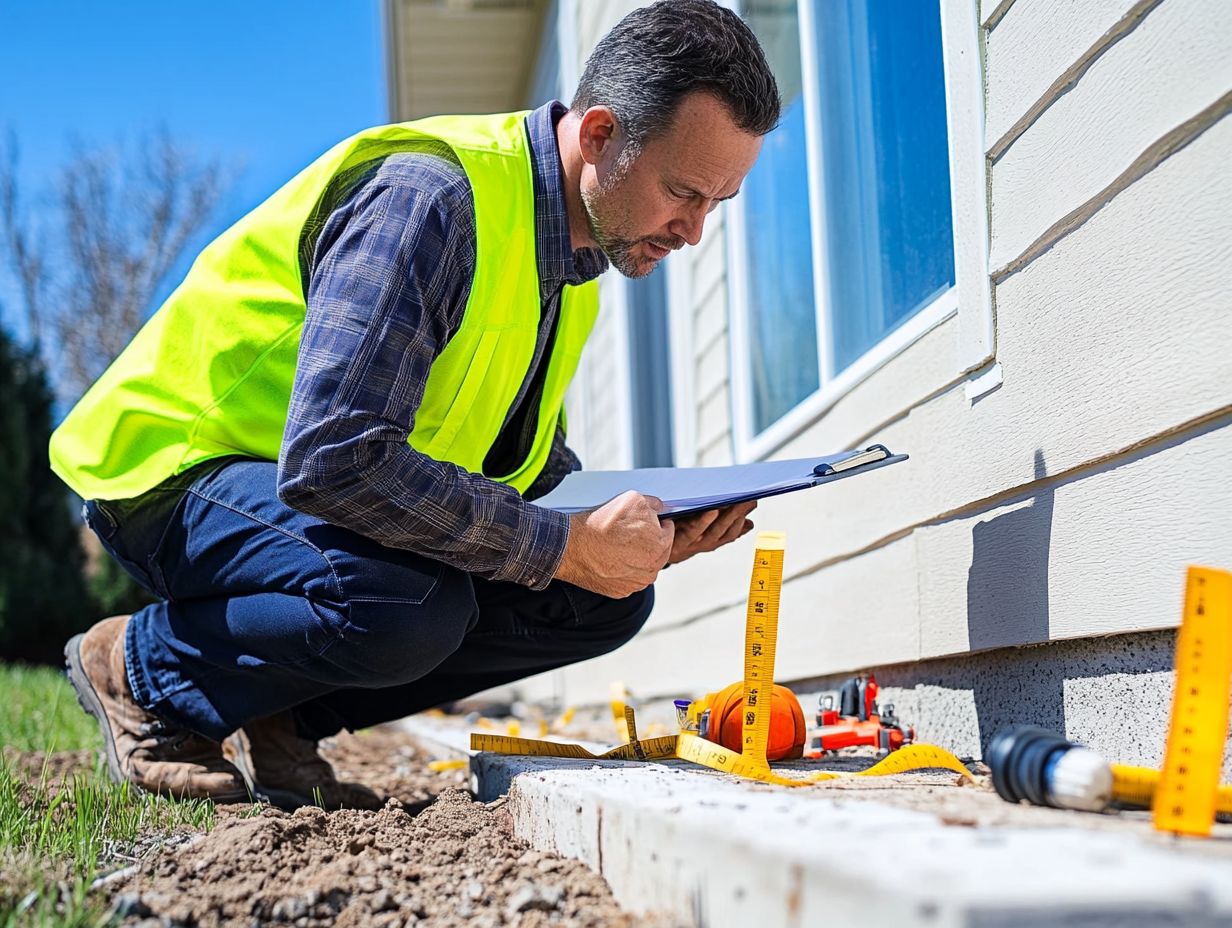
- Understanding home inspection costs is crucial for home buyers as it helps them budget for the overall cost of purchasing a home.
- The size, age, location, and type of inspection are key factors that influence the cost of a home inspection.
- Home buyers can save on inspection costs by negotiating with the seller and choosing a qualified and affordable inspector.
What is a Home Inspection?
A home inspection is an in-depth evaluation of a property’s condition, usually carried out by a qualified home inspector. This essential step in the home buying journey allows you to assess various aspects of the property, including its structural integrity, systems functionality, and overall safety.
By uncovering potential hidden issues, you give yourself the power to make informed decisions. Understanding the nuances of the inspection report can significantly influence your choices as you navigate the complex landscape of the real estate market.
Purpose and Importance of a Home Inspection
The purpose of a home inspection is to equip you, the prospective homebuyer, with a comprehensive evaluation of the property’s condition. This process identifies safety hazards and structural integrity issues that may not be immediately visible.
An in-depth inspection acts as your crucial shield against unexpected financial burdens that could emerge post-purchase. For example, a thorough examination of your heating, ventilation, and air conditioning systems can reveal age-related inefficiencies that might require costly replacements.
Plumbing inspections are equally essential; hidden leaks or outdated piping may evade notice during a casual walk-through, yet they could lead to significant repair expenses down the line. A roof condition assessment is vital as well, helping you gauge its lifespan and any potential repairs needed.
This knowledge gives you the power to negotiate effectively, ensuring you are fully informed and can safeguard your investment with confidence.
Factors Affecting Home Inspection Costs
Various factors can impact the cost of a home inspection. The size and age of the property, its location and accessibility, as well as the specific type of inspection you require can all play significant roles. These variables can lead to considerable differences in average costs, making it essential for you to consider each aspect carefully.
Size and Age of the Home
The size and age of a home are key factors in determining the cost of a home inspection. Larger properties typically demand more time and resources for a thorough evaluation, while older homes often present unique challenges due to outdated systems and potential structural issues.
Inspecting larger homes can be complex due to multiple levels, numerous rooms, and various amenities, which prolongs the inspection process and drives up costs. As homes age, they can conceal hidden problems like neglected plumbing or electrical systems that might not be immediately apparent.
Inspectors must be particularly diligent in uncovering these potential issues, which can further increase fees. Therefore, it s essential for buyers to keep both the size and age of a property in mind when budgeting for inspection expenses. These factors significantly impact the thoroughness and comprehensiveness of the assessment, ultimately influencing your investment decisions.
Don’t wait until it’s too late! Schedule your home inspection today to protect your investment!
Location and Accessibility
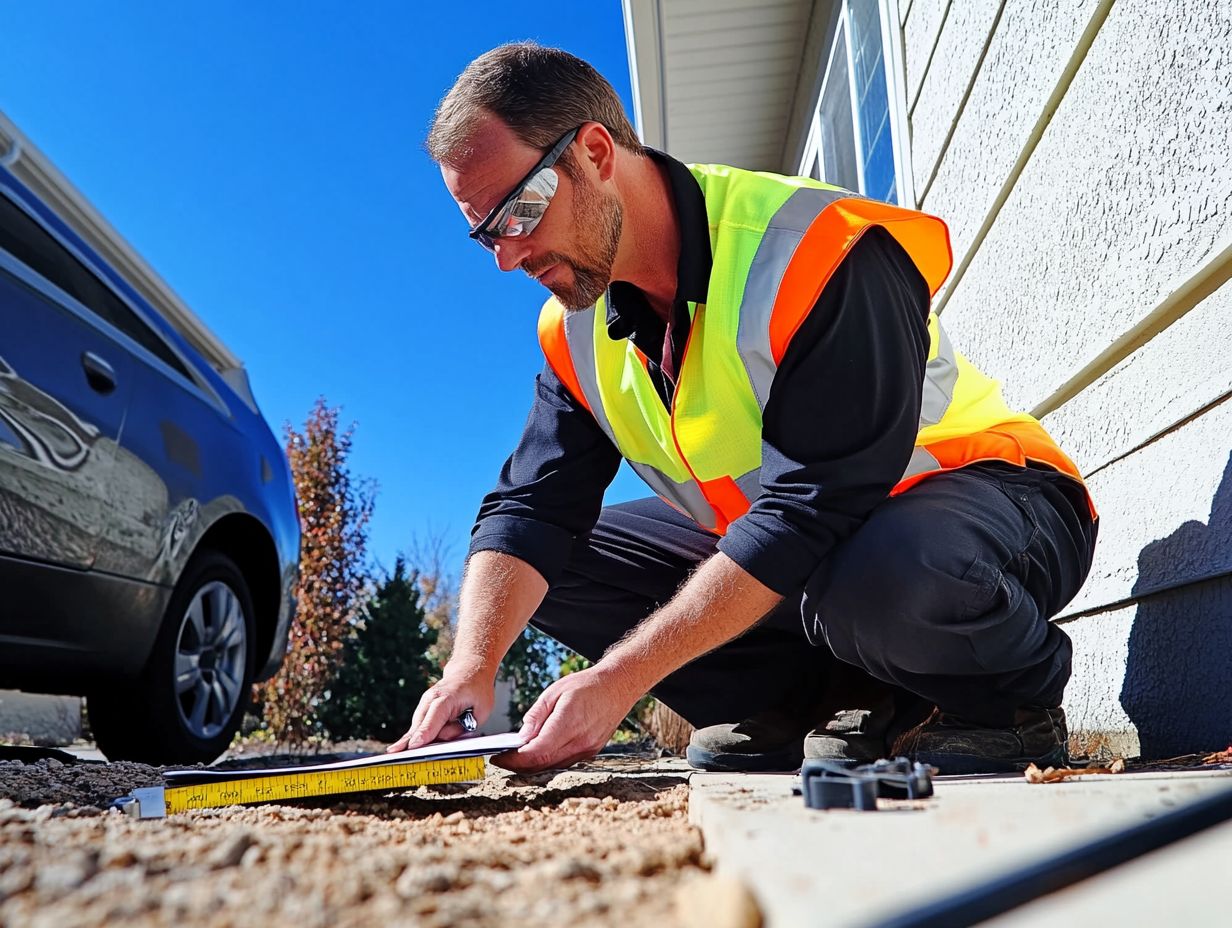
Location and accessibility can greatly influence your home inspection costs.
If you re looking at homes in urban areas, like New York City, be prepared for higher fees. This is often due to increased demand for professional inspectors and logistical hurdles.
On the flip side, properties in suburban or rural areas often have lower inspection costs. With less competition and easier access, inspectors can offer more attractive rates. For example, a home nestled in a quiet neighborhood on the outskirts of a city usually means more affordable inspection services, as travel time and distance are minimized.
However, it s worth noting that even in these more accessible areas, homes that are tough to reach due to limited road access or that require additional services, such as mold assessments, can still result in higher fees. By understanding these different location factors, you can navigate the various elements that affect your home inspection expenses with greater ease.
Type of Inspection
The type of inspection you choose plays a crucial role in determining the cost of your home inspection. Standard inspections may differ in price compared to specialized services like plumbing evaluations or assessments of heating, ventilation, and air conditioning (HVAC) systems.
When considering home inspection services, it s easy to overlook the specific types available, each carrying unique implications for your budget. A standard inspection typically covers essential aspects such as structural integrity, electrical systems, and overall safety, generally resulting in more affordable costs.
On the other hand, specialized inspections like radon testing or lead paint evaluations can lead to higher expenses due to the need for additional expertise and specialized equipment.
Knowing these distinctions empowers you to make smart choices regarding your inspection needs, ultimately enhancing the value and safety of your investment.
Average Costs of Home Inspections
Understanding the average costs of home inspections is crucial for you as a homebuyer.
These fees can fluctuate significantly due to national averages and regional variations, ultimately impacting your overall budget for the home purchase.
National Averages and Regional Variations
National averages for home inspection fees offer a useful benchmark, but recognizing regional variations is essential. To gain a clearer perspective, it’s important to explore understanding home inspection costs, as different states and cities experience fluctuations in costs due to the unique conditions of their local real estate markets.
For example, in Texas, a comprehensive inspection usually falls between $300 and $500. This range reflects the state’s bustling housing market and typically larger property sizes.
In contrast, Illinois presents a different scenario, with fees ranging from $350 to $600, driven largely by the urban density found in cities like Chicago.
These variations highlight how factors such as demand, property types, and even seasonal trends can lead to notable differences in home inspection costs across the country. As you prepare to invest in real estate, recognizing these regional distinctions will empower you to budget more effectively and make informed decisions, especially by understanding the cost breakdown of home inspections.
Additional Fees to Consider
In addition to standard home inspection fees, you should be mindful of extra costs that may arise from additional services, as well as the potential need for repairs or re-inspections.
These unexpected expenses can further strain your budget, making it essential to plan accordingly.
Additional Services and Add-ons
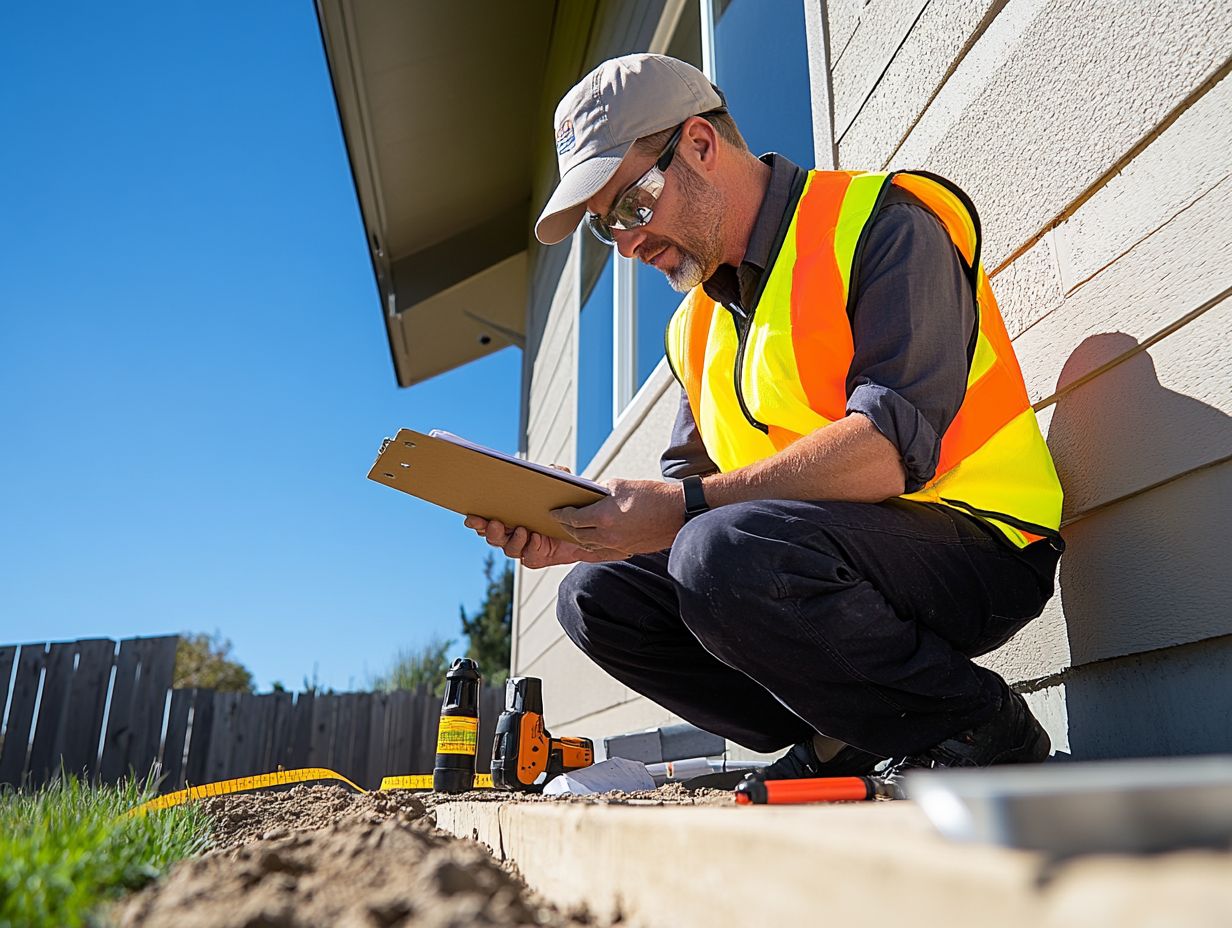
As a homebuyer, you have the opportunity to invest in additional services and add-ons during the home inspection process. Options like enhanced inspection reports or specialized assessments can provide you with deeper insights into potential emergency repairs.
These supplementary choices not only deliver a more comprehensive understanding of the property’s condition but also spotlight critical areas that may demand immediate attention or future investment.
For instance, thermal imaging can uncover hidden moisture issues, while radon testing ensures that your indoor air quality is safe. Likewise, pest inspections reveal any signs of infestation, offering you peace of mind and protection against costly damages.
By incorporating these additional services, you empower yourself to make more informed decisions, minimizing the risk of unforeseen problems and securing your investment. Investing in these services can save you from costly surprises later. Don’t wait until it’s too late!
Costs of Repairs and Re-inspections
Unexpected costs from repairs found during inspections can affect homebuyers. Sometimes, re-inspections are necessary to ensure hidden issues are fixed.
This financial strain can be especially daunting for first-time buyers on tight budgets. Common problems like plumbing leaks and roofing deficiencies can raise closing costs and lead to prolonged negotiations.
Unexpected repairs can delay your buying timeline, adding stress. Recognizing these potential pitfalls is crucial for informed decision-making.
Ways to Save on Home Inspection Costs
As a savvy homebuyer, you can save on inspection costs with strategic approaches. Negotiate with the seller to share expenses or find a qualified, affordable inspector.
Negotiating with the Seller
Negotiating with the seller is a powerful way to manage inspection costs. This opens discussions about covering expenses from necessary repairs.
At the negotiation table, know the property’s condition. Highlight specific findings to convey potential financial implications.
With contractor estimates, you can request the seller to lower the price or cover repair costs. Maintaining a collaborative tone can lead to smoother transactions.
Choosing a Qualified and Affordable Inspector
Choosing a qualified, affordable inspector is key for homebuyers. This process requires careful evaluation of various factors to ensure thorough inspections.
Look for inspectors with certifications from recognized organizations, highlighting their expertise. Experience matters; it helps identify issues that may not be obvious.
While affordability is important, never compromise on quality. Compare services and read reviews to select the right inspector.
Frequently Asked Questions
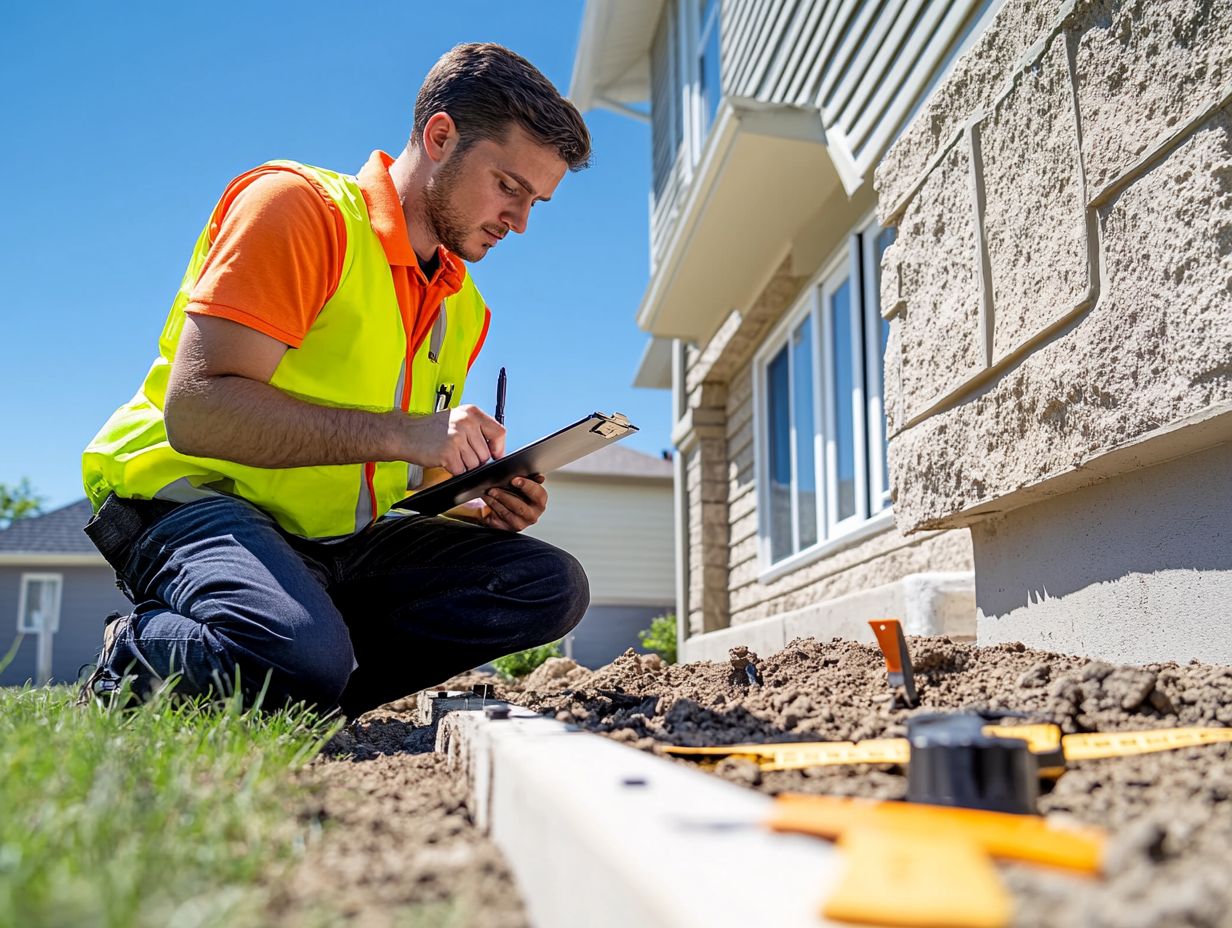
What is included in a home inspection?
A home inspection includes a thorough examination of the structure, major systems like electrical and plumbing, and overall condition. Inspectors also check for safety hazards or code violations.
How much does a home inspection cost?
The cost of a home inspection varies based on factors like size, age, and location. Typically, it ranges from $300 to $500, and it’s important to be aware of understanding home inspection fees and costs to budget accordingly.
Do I need to be present during the home inspection?
While it’s not required, attending the home inspection is highly recommended. This allows you to ask questions and understand the inspector’s findings better.
What if the home inspection reveals problems?
If issues arise, address them with the seller. Negotiate for repairs or a lower price based on findings, and be prepared to walk away if necessary.
Are there any extra costs associated with a home inspection?
The inspection itself has a cost.
There may be extra fees for specialized inspections like termites, mold, or radon. Radon is a colorless gas that can be harmful in high levels.
Can I choose my own home inspector?
You have the right to choose your own home inspector!
Researching your options is important. Look for a licensed expert with great reviews.
Your real estate agent can also give you recommendations.

